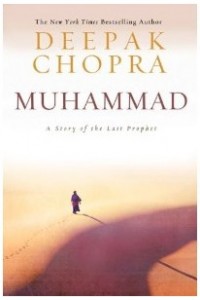“Well, usually it’s because some important religious event took place there.”
“What does it mean to say that something took place in a particular location when we know that the earth is constantly in motion, rotating on its axis and orbiting the sun? And we’re in a moving galaxy that is part of an expanding universe. Even it you had a spaceship and could fly anywhere, you can never return to the location of a past event. There would be no equivalent of the past location because location depends on your distance from other objects, and all objects in the universe would have moved considerably by then.”
“I see your point, but on Earth the holy places keep their relationship to other things on Earth, and those things don’t move much,” I said.
“Let’s say you dug up all the dirt and rocks and vegetation of a holy place and moved it someplace else, leaving nothing but a hole that is one mile deep in the original location. Would the holy land now be the new location where you put the dirt and rocks and vegetation, or the old location with the hole?”
“I think both would be considered holy,” I said, hedging my bets.
“Suppose you took only the very top layer of soil and and vegetation from holy place, the newer stuff that blew in or grew after the religious event occurred thousands of years ago. Would the place you dumped the topsoil and vegetation be holy?”
“That’s a little trickier,” I said. “I’ll say the new location isn’t holy because the topsoil that you moved there isn’t itself holy, it was only in contact with holy land. If holy land could turn anything that touched it into more holy land, then the whole planet would be holy.”
The old man smiled. “The concept of location is a useful delusion when applied to real estate ownership, or when giving someone directions to the store. But when it is viewed through the eyes of an omnipotent God, the concept of location is absurd.
“While we speak, nations are arming themselves to fight for control of lands they consider holy. They are trapped in the delusion that locations are real things, not just fictions of the mind. Many will die.”
— From Scott Adams’ God’s Debris: A Thought Experiment


